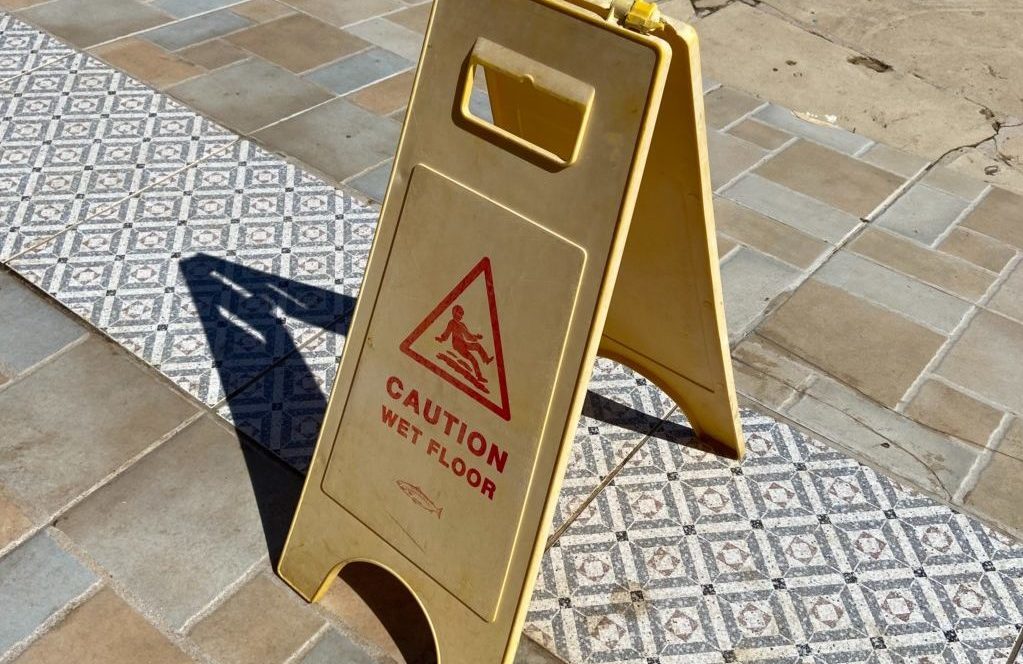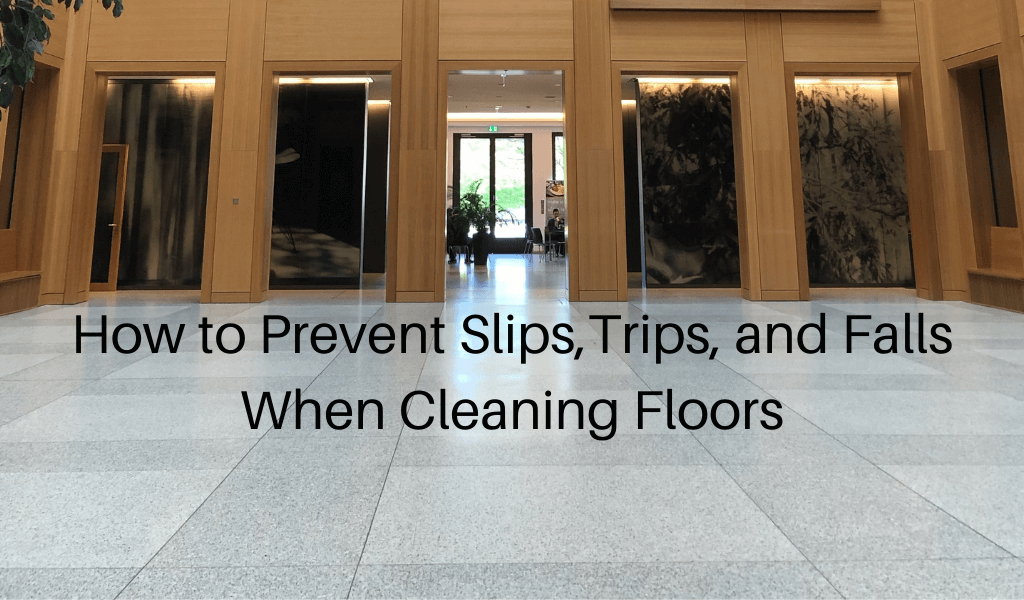Wondering how to prevent slips, trips, and falls when you’re just trying to do your job? Here are some ideas that will keep your team and your customers safe.
If you’ve ever picked up a mop, splashed a bucket of cleaning solution, or spilled a glass of water on the job, you’ve undoubtedly come across the question of how to prevent slips, trips, and falls when you’re cleaning a client’s space.
It’s a more serious problem than most people realize, too. According to the National Safety Council (NSC), slip, trip, and fall injuries accounted for 880 workplace deaths and 244,000 workplace injuries in 2019. That’s second only to transportation-related incidents for fatalities and overexertion for injuries.
While we don’t want anyone to get hurt while we’re working, there’s also the obvious issue that cleaning floors often involves making them temporarily slippery with cleaning solutions and water. There are also tripping hazards if we need to use cords and outlets to plug in any equipment like vacuums. In other words, the very things we need to do are also very likely to cause slips and trips. Still, there is a lot you can do to help keep people safe and injury-free.
Work smarter, not harder, with Janitorial Manager. Get your free discovery call today to find out how you can make your business better!

How to prevent slips, trips, and falls while you’re doing your job
There are some obvious things you can do, like placing “Wet Floor” signs around your work area. It is a valuable tool in keeping people aware that the floor is slippery, but it’s also a given. If you aren’t already putting these signs out for some reason, it’s beyond time to do so.
Another tool for preventing slips is to wear non-slip shoes, but it’s unreasonable to think that you can require your customers to wear specific kinds of shoes. So let’s look at how to prevent slips, trips, and falls with some realistic ideas.
1. Conduct a safety walkthrough. Before you begin working in a new facility, conduct a safety assessment. Note things like uneven floors, slick surfaces, areas where plumbing or appliances leak, and any other hazards that may come up as you’re cleaning floors.
2. Prep your area. The more you can prepare a surface for cleaning, the less time you’ll have to spend with your equipment and cleaning solutions out where they may be a hazard. Before you start cleaning a floor, move items out of the way as much as possible. Stack chairs, slide items off to the side, and generally give yourself as much room to work as you can.
3. Clean up after yourself. This may seem a bit ironic, considering the nature of the janitorial industry, but it’s so easy to forget a box of supplies, a trash bag, or some other item left in a walkway. We put them down and carry on with our tasks with a plan to get back to them. But the minute you walk away, an unsuspecting person could walk around the corner or get distracted and trip.
4. Clean up spills correctly. Different liquids require different clean-up methods. Be sure your team is using the right one.
5. Move cords as quickly as possible. As soon as you’re done using any cleaning equipment you need to plug in, unplug and put away the cord right away. That will keep it off the floor where someone could trip on it.
6. Keep the lights on. When it comes to strategies for how to prevent slips, trips, and falls, keeping an area well-lit is one of the best things you can do. Dim passageways and dark rooms create ideal conditions for trips and slips. Keep your workspace illuminated so neither you nor a customer trips over a hidden hazard.
7. Communicate. Unless you’re working in a space alone, communicate to other janitorial team members and your customers that you plan to clean the floor, and it will be slippery for a little bit.
8. Close the area. If you can, close off the area or section of the floor where you are cleaning. If we think about how to prevent slips, trips, and falls, then keeping people out of an area eliminates a major part of the equation. This may not always be possible, but if you can, it won’t just keep things safer; it will also make your job easier since you won’t have to work around people.
9. Use the right floor cleaner. Certain soaps and cleaning products can leave a slippery film on floors with hard surfaces like tile or marble. Instead, use a product designed for the surface you’re cleaning. No matter how tempting it is to use whatever is on hand, that could be a harmful mistake.
10. Offer employee training. You may not be able to do much about how your customers use and move around a space, but you can train your employees. Make safety a priority. Ask them to come up with some ideas for how to prevent slips, trips, and falls in the facilities they work in. A little knowledge can go a long way.
While there’s no way to guarantee you’ll never have someone slip on a wet surface or trip over a cord, there is a lot you can do to reduce that chance. A few basic safety procedures can go a long way in keeping everyone safe.
Need help tracking your cleaning products so you know how much you’re using and when to reorder? Janitorial Manager can help you make that process run smoothly. Get in touch today and we’ll show you how easy it can be.

